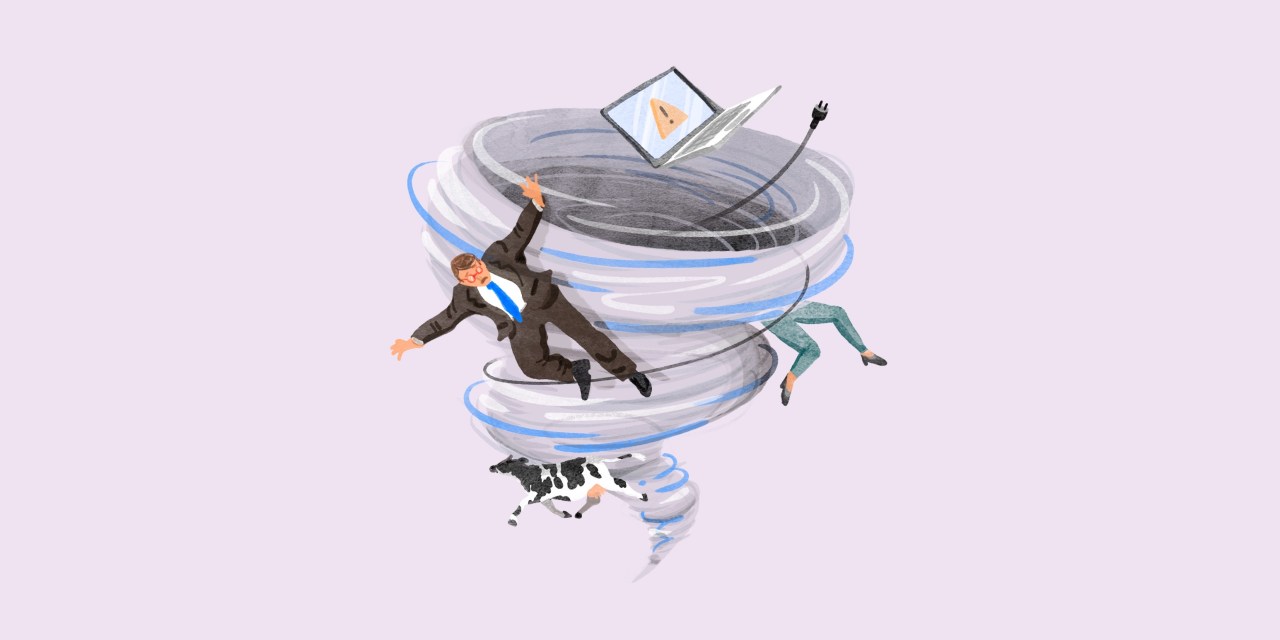Rise of work-related fears hinder employee performance

Work can be stressful, tiring, overwhelming, and for some even scary.
Some 87% of respondents in a recent survey from LiveCareer, a job search resource platform, said they suffer from a range of work-related fears. And 81% admitted that their fears and phobias have negatively affected their job performance.
Making decisions, taking responsibility, public speaking, getting fired, making a mistake and being disliked by coworkers or a boss are employees’ biggest fears, according to the survey, which included over 1,000 U.S. respondents and was conducted in March. And 81% said they’d turn down their dream job if it involved having to face their biggest fear or phobia.
Those with work-related fears said it impacted their performance by causing them to miss work (37%), or on promotions (35%), or force them to quit a job (35%).
Other top-cited fears not directly linked to work, but often a part of it, include fears of public spaces or crowds, speaking on the phone, disorder or untidiness, and closed or open spaces.
To be sure, there’s a difference between a fear and a phobia. Fear is a rational idea and involves something that it makes sense to be fearful of, while phobias are more irrational, and more about the level and severity rather than type of fear, said Cassandra Fallon, a licensed marriage and family therapist at mental healthcare company Thriveworks.
Seeing a coworker get laid off and fearing one’s own job security would be a rational fear, she said.
The findings come amid an economic downturn and follow a wave of layoffs, mainly in the tech industry, with more job losses expected later this year.
Meanwhile, an increasing number of workers are being called back to offices after working remotely throughout the pandemic. That has triggered severe anxiety for some, including those who have relocated away from their previous offices or started new jobs following the great resignation.
The survey also found that work-related fears weigh less heavily for certain cohorts, like Gen Z. Some 18% of employees aged 25 years old or younger said they don’t have fears affecting their work life, compared to 12% of those aged 41 years old and above.
Employees at larger companies were less likely to report work-related fears than those at smaller ones as well. About 32% of those at companies with 501 or more employees said they don’t have work-related fears, compared to 15% of workers at companies with 10 or fewer employees, and 10% of those at mid-sized firms with 200-500 employees.
Workers are quite open to sharing these fears however, the survey found. About 80% of respondents said they talked about their fears with someone at work and 61% said they’d be comfortable doing so. They said they’d first tell a coworker, then the HR team, and then their boss or manager.
“To get someone’s feedback and be able to have a sounding board is huge, it validates our experience,” Fallon said. “Sometimes we don’t realize that the things we believe actually are holding us back,” she said.
Those uncomfortable sharing their fears said they hid them because they felt ashamed, there’s a lack of trust, and they’re concerned their issues will be seen as a lack of motivation to work.
Employer support could help them overcome some fears. Feeling their workplace is supportive and improving social relations at work were cited as motivating factors for workers to overcome their fears, the survey found. Additional workplace benefits, getting promoted and getting a pay raise were also cited.
